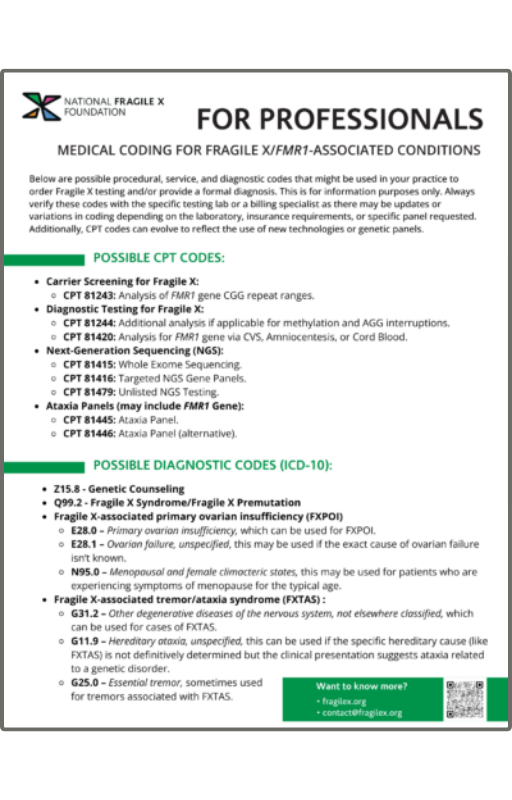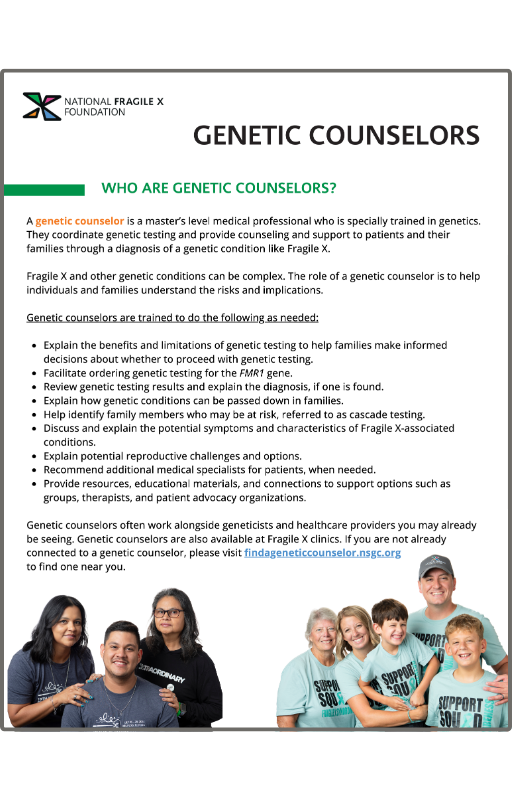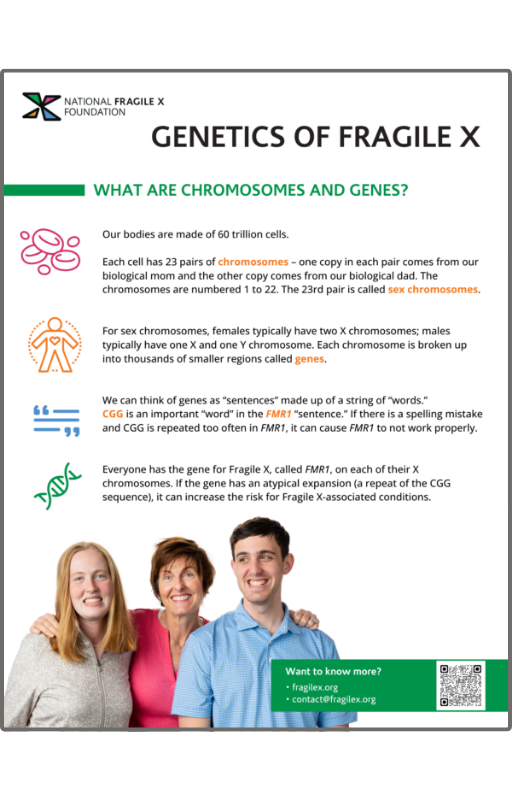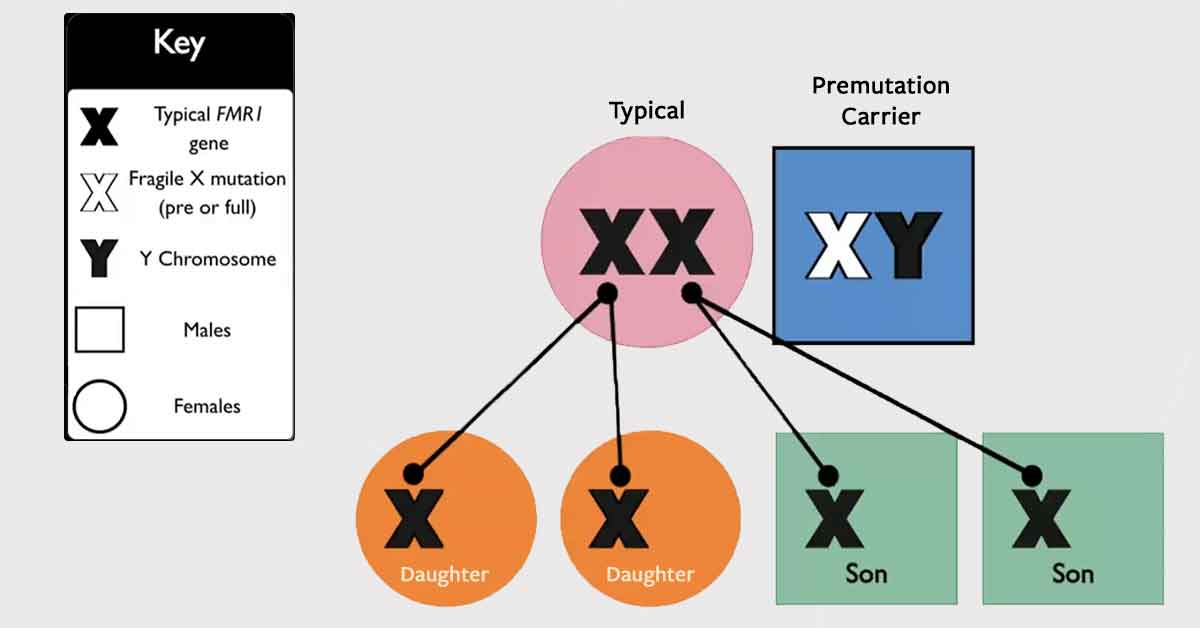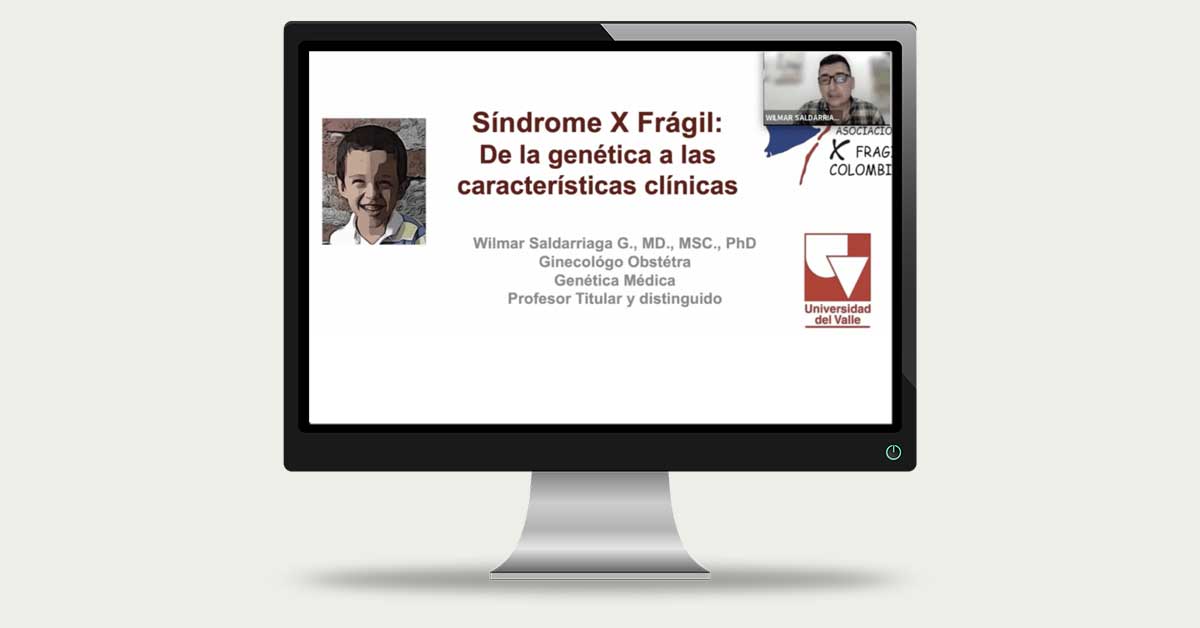The hour-long webinar explored important topics such as inheritance patterns, carrier screening, diagnostic testing, ataxia panels, and much more. It reinforced the importance of genetic counseling in managing FMR1/Fragile X-associated conditions.
Discussion
The following are key takeaways from the discussion:
Genetic counselors: Their role is crucial for families navigating genetic conditions. They help families understand complex genetic information, interpret test results, and provide guidance on decision-making. They continue supporting their patients through the diagnostic process, offering education, counseling, and assistance in navigating additional healthcare consultations. They also guide families on sharing key information with relatives who may be at risk. As one panelist shared, genetic counselors can become like “family friends,” offering technical expertise and emotional support.
Understanding the inheritance patterns of the FMR1/Fragile X gene: Inheritance refers to how genes are passed down from parents to their children. The inheritance of the FMR1 gene is complex. Everyone carries the FMR1 gene, but variations or atypical expansions in this gene can lead to risks for Fragile X-associated conditions. A genetic counselor can help explain the risks associated with the gene’s expansion, its potential impact, and how it may affect future generations.
Genetic testing options: When consulting with your genetic counselor, you may have many testing options to consider. Each individual’s situation is unique, and it is important to understand the available testing options, their potential risks, and what the results may mean for you and your family.
- Carrier screenings are widely available and can be completed before or during pregnancy. The panelists noted that carrier screening is intended to identify conditions that manifest in childhood, such as Fragile X syndrome. Please note: Due to the inheritance patterns of the FMR1 gene, a male with an atypical expansion can only pass it to his daughters, and the gene is not expected to expand further. Typically, the daughter will inherit the gene within the premutation range. The male may need to discuss alternative genetic testing options, other than carrier screening, with his genetic counselor.
- Prenatal-fetal FMR1 diagnostic testing can detect FMR1 expansions through samples from the placenta, amniotic fluid, or cord blood analysis during pregnancy or at birth.
- FMR1 diagnostic testing is for individuals with clinical symptoms or a family history of a Fragile X-associated condition. The panelists noted that various samples (blood, saliva, buccal or cheek swab) can be tested. It is important to consult with your healthcare provider and the laboratory to confirm the required sample type.
- Ataxia panel testing screens for genetic causes of various forms of ataxia, a group of disorders that affect coordination and movement. Please note: The panelists encourage individuals experiencing neurologic concerns to receive a comprehensive evaluation from a neurologist and consult with a genetic counselor to ensure the most appropriate testing is being completed based on your specific situation.
Learn more about genetic testing for FMR1/Fragile X
Understanding the test results and the terminology: Testing for FMR1/Fragile X can involve several terms and acronyms that help interpret the results. These may include CGG repeat ranges, intermediate (“gray zone”), methylation, mosaicism, or AGG interruptions. Understanding these terms is key to determining the implications of the test results.
The discussion demonstrated that navigating Fragile X genetics is complicated and requires a personalized approach. Genetic counselors can help ensure the recommended testing option includes the “right patient, right test, and right time.”
For Professionals: Medical Codes
We have compiled possible procedural, service, and diagnostic codes that might be used in your practice to order FMR1/Fragile X testing or provide a formal diagnosis. This is for informational purposes only. Always verify these codes with the specific testing lab or a billing specialist, as there may be updates or variations in coding depending on the laboratory, insurance requirements, or specific panel requested.
